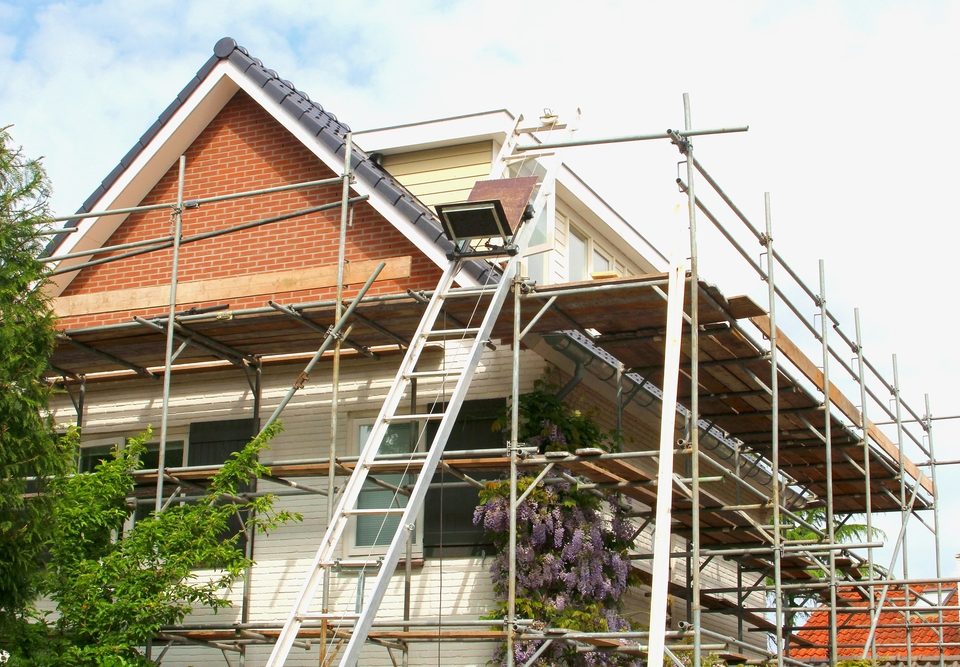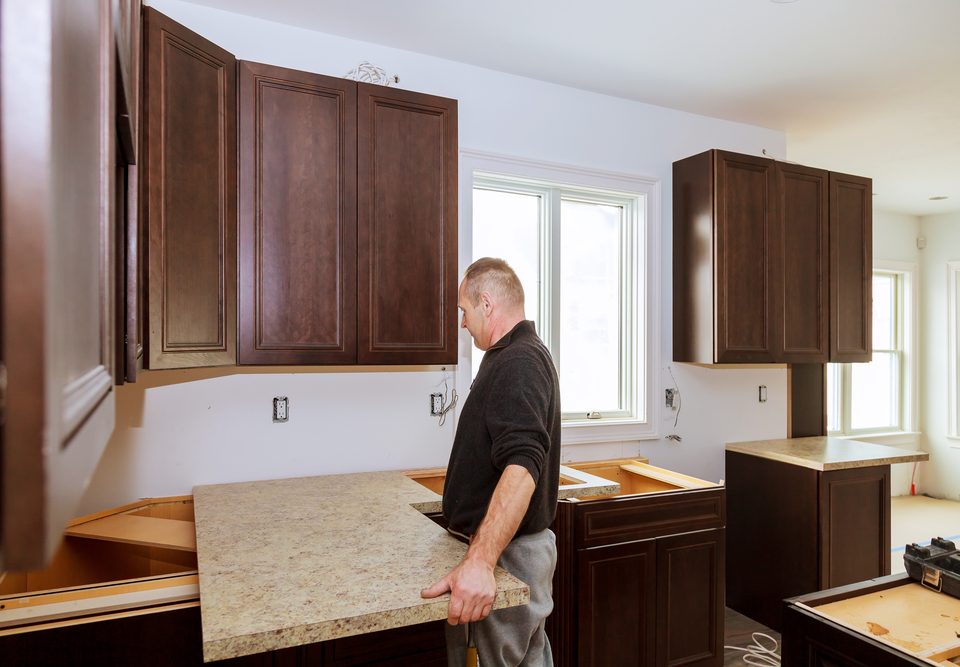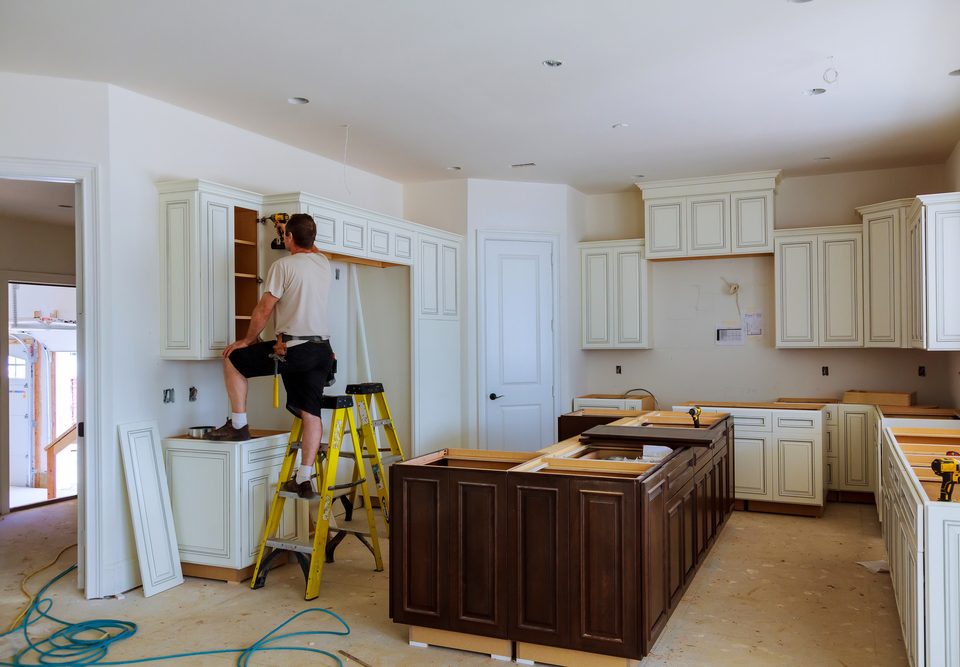- Call Today:
- 0333 358 3991
- myproject@r8e.co.uk
House Extensions: 21 Things You Need to Know

House Renovation: The Complete Guide
February 21, 2019
A Guide to Saving on New Kitchen Costs
March 4, 2019House extensions are all about adding extra space on to your property. There are various reasons people do this. Perhaps you’re looking to extend because you want to add value to a house you plan on flipping? Or maybe your family is growing, and you need more room?
Whatever your reasons are, there is much to be considered if you want your project to be as successful, inexpensive and as painless as possible.
From design ideas and project logistics to the costs and legalities of house extensions, you don’t want to miss a thing!
So, we have compiled a list of 30 things that anyone planning a house extension needs to consider before getting started.

1. Living on site could slow progress
Although you can live on site throughout your house extension project, you will probably end up slowing down progress. This is because contractors will need to work around your life.
If you do choose to live on site, then be prepared for disruptions and a lot of mess. If you’re not prepared to live with the disruption. We recommend organising accommodation for yourself with serviced apartments being your best option. Either that or staying with family or friends.
2. Choose the right designer
House extensions aren’t possible without a great designer.
Depending on what you’re looking for, you can choose between:
- Architects
- Architectural technicians
- Specialist designers
- In-house design teams of package build companies

3. Access Restrictions
Many people in the UK live in terraced homes, this means you may not be able to use certain construction methods.
You will also need to arrange with your neighbours about possibly storing goods on their property, perhaps even removing the fence between your homes temporarily.
4. Insurance
When extending a property you need to have site insurance to cover the existing house and the new works carried out.
Our advice is to contact your existing insurance provider to notify them of your project before you start
5. Combining contemporary and traditional
Do you want the extension to complement or contrast with the main property?
If you are looking to match your extension to the existing property, then be mindful of matching materials from the very start – again a designer for this process is highly recommendable.
6. Don’t rush in
Before finalising plans, ensure that the “value” you’re adding to the house is greater than the cost of the house extension project. This can be assessed by looking at similar properties in the same area.
What is the ceiling value in your area? If your house extension plans outweigh this, then reconsider.
It may make more sense to sell and move as opposed to investing in your property.
7. Can Your heating system cope?
House extensions will add demand to your current hot water system — which may not be able to cope, especially with older houses.
What will the extension need in order to be heated properly? This will determine your boiler output, the size of the radiators, hot water cylinder size and the reheat time.
8. Building regulations
Before attempting a house extension, you must get building regulation approval.

The Building Regulations set out minimum requirements for the following:
- structural integrity
- fire safety
- energy efficiency
- damp proofing
- ventilation
All for the purpose of safety. Examples of works needing approval:
- House extensions for a kitchen, bedroom, lounge, etc
- Installation of new heating appliances
- New chimneys
- New windows
- Loft conversions
- Installation of baths, showers, WCs which need new drainage or waste plumbing
9. Plan carefully when extending above
Before extending above a single storey, you need to determine whether the structure below can handle the weight.

If the ground structure is old and may not be able to handle the load, then consider the following:
- Underpinning existing shallow foundations
- Strengthening or bypassing the existing structure with a steel frame bedded in new concrete pad footings
- Demolish and rebuild
Oftentimes, demolishing and rebuilding from scratch is less expensive and complicated.
10. Remember the Party Wall Act
An interesting fact to remember is that your neighbours can’t stop you from building up to the boundary between your properties. You can even request access onto their land if you have the planning permission, and there are no restrictive covenants terms.
According to the Party Wall Act, you’re allowed to build up to your neighbours’ property, as long as it doesn’t affect mutual interests.
If your extension includes extending or digging foundations within 3m of a boundary, you will need to comply with the Party Wall Act. Find out more on the Party Wall Act here.
11. Privacy
If you are considering a glazing extension, you will need to think about whether or not it impacts on the privacy of your home. The last thing you want is neighbours being able to see into your new space!
We recommend considering your boundary treatments. These will need to be adapted to ensure your privacy is maintained. Try tinted screens. They will maintain privacy without spoiling your view.
12. Consider building Off-Site
Off-site construction systems such as laminated timber, oak frame, structural insulated panels and timber frame are very effective house extension projects.
The beauty of off-site construction is that most of the work happens in a factory off-site, the components then get delivered to site for installation and erection.
13. Sewer location
When conducting a house extension, you need to carefully consider the relocation of sewers. If a shared sewer is within 3m of your extension, then a Build Over Agreement with your local water authority is required.
This can be a complicated process, especially if a new manhole is needed, or an existing one needs to be relocated.

14. Co-manage your house extension project
Do you have high levels of patience? Are you organised? If so, why not co-manage your own house extension project? Problem-solving and decision-making skills are imperative, but no one will know the space or have the vision that you do for the project.
On top of this, there is no one more invested in getting the best out of the process. If you think co-managing an extension is too much of a responsibility, then at least work closely with the project manager you hire.
15. VAT Relief
House extensions are usually subject to VAT. This applies to materials and labour at a rate of 20%. This is if you use a contractor to extend your property. By using local tradesmen you may be able to save the 20% VAT on their labour, but not on materials used whereby the standard rate still applies.
Useful to know: The conversion of an existing property to extend the number of units and work to a building that has been unoccupied for at least two years have are eligible for a reduced rate of 5% Vat.
More on VAT relief here. Tip: Use a VAT registered builder.
16. Contingency Budget
When it comes to house extensions and even house renovations, it’s imperative you have a healthy contingency budget to cover any unexpected costs. Which, unfortunately with construction, is usually par for the course.
If you can afford it, we recommend adding an extra 10% of what the house extension is already going to cost you – just to be safe.
17. Building Control
Before you so much as start digging foundations, it’s important that you submit either a full plans application or building notice to Building Control. Once you have completed that process, you can then start house extensions immediately. Remember that you are still liable for the corrections of any work if it fails to meet Building Regulations’ standards upon inspection.
18. Don’t just cut down any tree

Tree Preservation Orders protect certain trees. Without planning permission, you are prohibited from altering or even felling/pruning a tree that has a Tree Preservation Order on it.
If your house extension falls under a Conservation Area, then most trees will be protected by this legislation. Removing or even altering tree’s that have a Tree Preservation on it is a criminal offence, resulting in substantial fines. So be sure to double-check first.
19. Light generation needs to be managed
Although screen blinds are available and screen fabrics can also be used to reduce glare and diffuse light, unmanaged light generation can create issues connected to solar gain.
When your designer incorporates glazing features into an extension, just ensure the extension is situated correctly in order to avoid not being able to use the space for certain parts of the year.
20. Plan ahead
Extending a house can prove to be a lengthy process. Even acquiring the permission and receiving building regulations approval can take months. The key is to be patient!
Tip: Consider the time of year, factoring in holidays, and any crucial family events for which you will need your house. Once you have got that figured out, you then need to manage your time.
21. Set a strict timetable

You should plan well in advance. Set yourself and the contractors a strict timetable for completion. As we’ve already said, there may be unexpected issues, but if you stick to the time frame as best as possible, you will avoid running too far over your finish date. However, when it comes to loft conversion conversions, time tables need to be stricter.
At renov8experts, we perform expert construction & property renovation in Surrey, so if you are looking for a building service, get in touch with us for a free, no obligations quote today.




